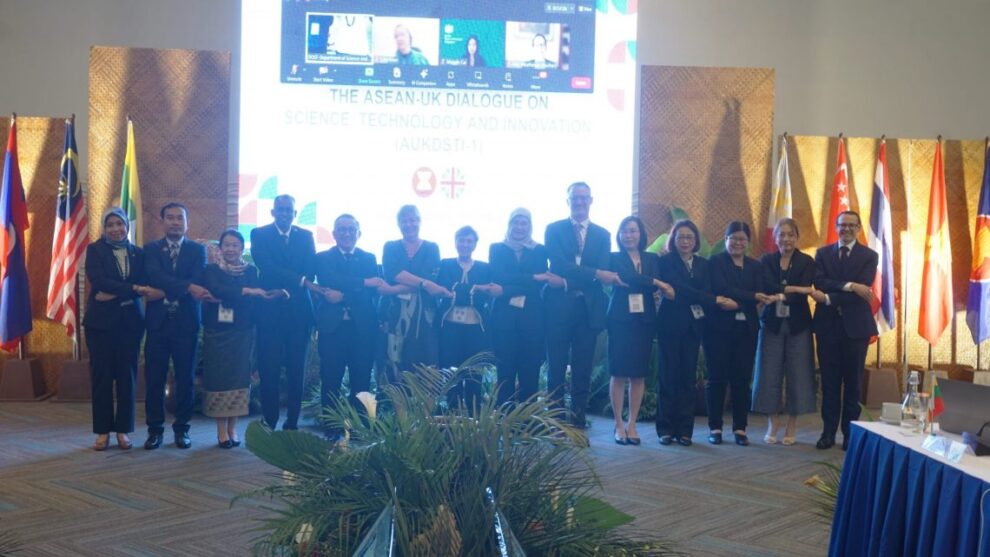BOHOL, 20 October 2023 – The Association of Southeast Asian Nations (ASEAN) and the UK co-chaired the first ASEAN-UK Dialogue on Science, Technology and Innovation (AUKDSTI-1) today, marking a milestone in the growing partnership.
The dialogue provided a platform to promote and intensify cooperation in the scientific, technological and innovation activities between ASEAN and UK. The cooperation is anchored in the implementation of the ASEAN Plan of Action on Science, Technology and Innovation (APASTI) 2016-2025.
In his remarks, Permanent Secretary Mohammad Nazri Mohammad Yusof of Brunei Darussalam’s Ministry of Transport and Infocommunications noted: “The UK is renowned for its excellence in science, technology and innovation boosting a rich history of scientific discoveries, technological advancement and innovative breakthroughs. The UK’s thriving academic institutions, vibrant start-up ecosystems and global leaders in various sectors remain a testament to this. The dialogue will allow ASEAN and the UK to identify common interests and establish a framework towards efficient collaboration. Overall, it presents an opportunity to harness the strength and expertise that the UK brings to the table.”
UK Ambassador to ASEAN Sarah Tiffin said: “As an ASEAN Dialogue Partner, the UK is pleased to co-chair this new STI dialogue with ASEAN. We believe that partnering and supporting ASEAN on science, technology and innovation are essential to addressing the challenges of our time and building a more sustainable and prosperous future for all. The UK looks forward to working closely with ASEAN to advance cooperation in this important field.”
At the dialogue, Colin Armstrong, UK Regional Director Science & Innovation in Southeast Asia, gave an overview of UK policies on STI, including the UK Science & Technology Framework and the UK International Technology Strategy.
Meanwhile, Dr. Brendan Donegan, UK Research and Science Partnerships Adviser, discussed the up to GBP1 million Research and Innovation for Development (RIDA) project that harnesses innovation to address Sustainable Development Goals and support low-income and vulnerable populations in Southeast Asia. RIDA supports initiatives that will be led locally by, or delivered in collaboration with, research institutes based in Southeast Asia.
Joining the meeting virtually, Dr. Lara Allen, CEO of the Centre for Global Equality and Dr. Amy Weatherup, Director of the i-Teams programme at the University of Cambridge, presented the ongoing efforts of the ASEAN i-Teams in Viet Nam and Indonesia which aims to develop a culture of technology commercialisation in ASEAN.
Furthermore, Dr. Maggie Cai, Senior Science and Innovation Adviser of the British High Commission in Singapore, introduced the ASEAN regional training and workshop in engineering biology project that seeks to strengthen Southeast Asian government officials’ understanding of the engineering biology landscape across growth, responsible innovation, and economic security.
The first dialogue also highlighted the importance of collaborative efforts undertaken by both sides in expanding new avenues for cooperation, which includes climate change adaptation, developing clean energy solutions, improving health systems, and increasing resilience to natural disasters.
The UK continues to pursue a strong and mutually beneficial cross-sectoral partnership in STI with ASEAN. In early October 2023, the UK pledged an additional GBP2 million to the ASEAN-Consultative Group on International Agricultural Research (CGIAR) Innovate for Food & Nutrition Security programme, demonstrating its commitment to working with ASEAN to use science to build lasting resilience and sustainability in ASEAN agriculture and food systems.
Source : asean.org










